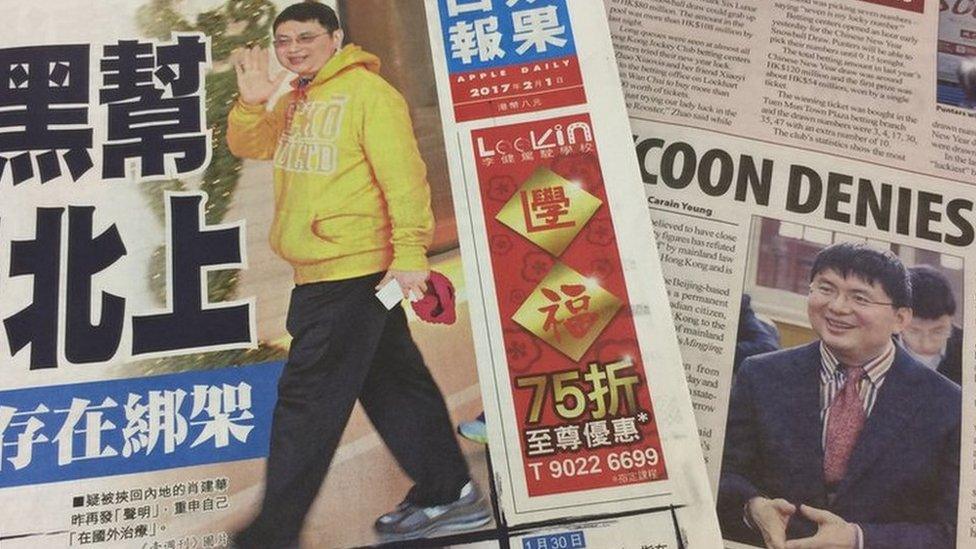China’s history of extraordinary rendition
- Published
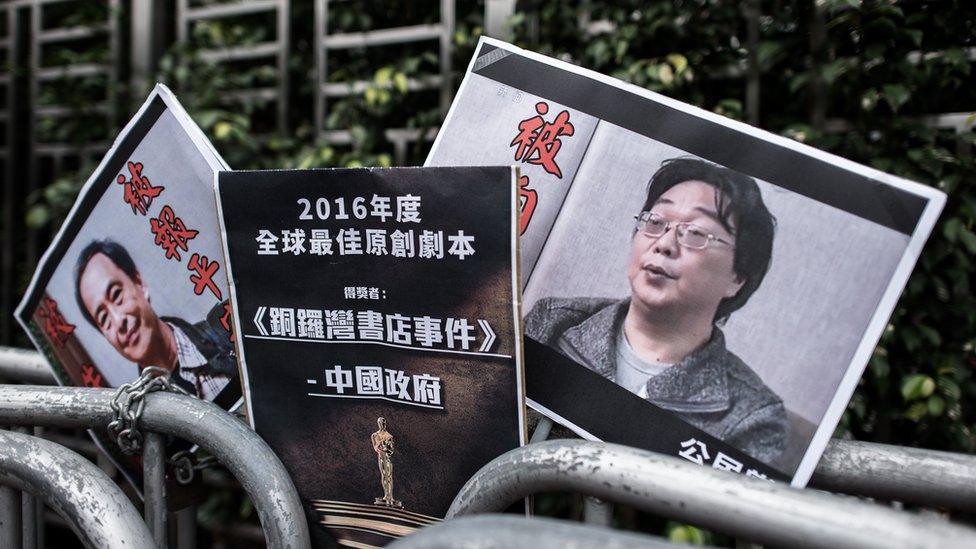
The disappearance of Gui Minhai and several other Hong Kong booksellers sparked concerns over the city's degree of autonomy from China
Proposed amendments to Hong Kong's extradition laws have sparked protests. They follow a number of reports of extraordinary rendition of opponents of Beijing being taken to China for trials.
Almost exactly three years ago Hong Kong was in uproar over the detention of five local booksellers in mainland China.
From a small bookshop in the bustling Causeway Bay district, they had been selling bawdy political satire about China's rulers.
Some of them had been paraded on Chinese state television confessing to crimes of "illegal trading".
Four had reportedly been detained while travelling in the country, but one was said to have been in Thailand when he disappeared.
That immediately raised fears that he had been illegally removed by Chinese agents.
When another of the booksellers was released on bail he returned to Hong Kong. He said he had been forced to make the confession, and would refuse to return to China to face charges.
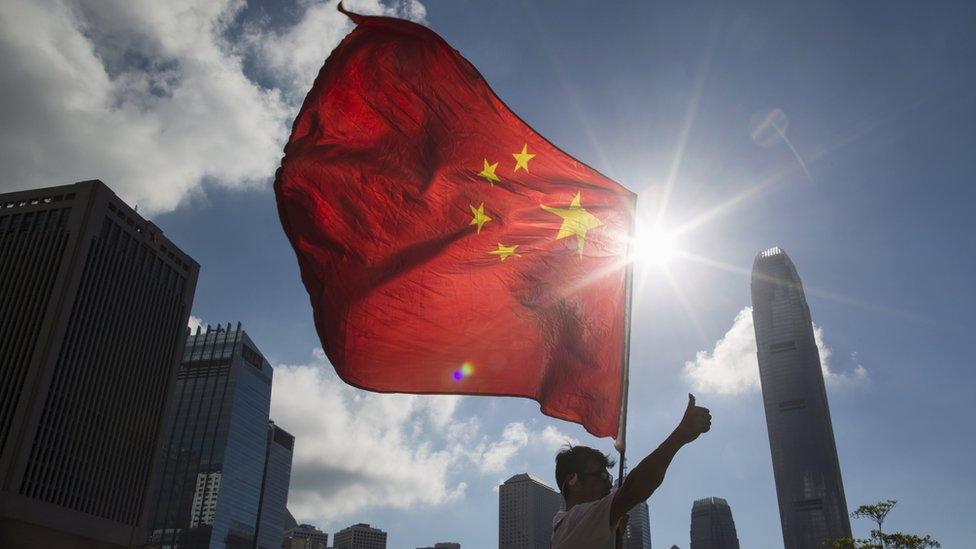
Hong Kong is part of China but maintains much autonomy under the "One Country Two Systems" principle
Hong Kong has its own police force and Chinese law enforcement agencies have no jurisdiction in the former British colony as part of an agreement that saw the city's handover to Chinese rule in 1997.
Hong Kong's former security chief Lai Tung-Kwok was very clear on the territory's position at the time: "There is no legal arrangement for the transfer of a person to the mainland authorities and the Hong Kong government will handle all cases in accordance with the law of Hong Kong," he told reporters in July 2016.
Now, Hong Kong's government is pushing forward with a highly controversial plan to allow some extraditions to mainland China.
Critics say the proposed amendments will expose anyone in the former British colony to China's deeply flawed justice system, but the government argues safeguards are in place to address such fears.
China has always denied allegations that it has "kidnapped" people it considers fugitives, but this remains one factor in the huge opposition to the bill and several notorious cases have fuelled such fears.
Gui Minhai
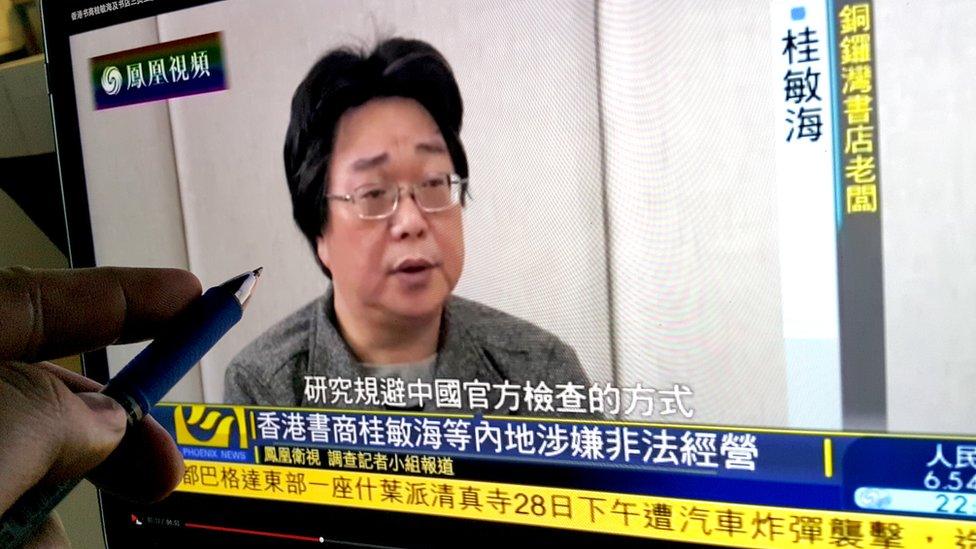
Mr Gui was paraded on Chinese television where he said he returned to the country "voluntarily"
The most high profile of the Hong Kong booksellers, Gui Minhai, made headlines when he vanished in Thailand in 2015, before reappearing in China where he was detained over a fatal car accident that took place in 2003.
Mr Gui was one of the several owners of the Causeway Bay Bookstore in Hong Kong, which sold books critical of the Chinese government.
All the other booksellers who used to work at the book shop also disappeared and eventually resurfaced in Chinese custody.
Mr Gui is a Swedish citizen, and Sweden quickly sent detectives to Thailand to help look into his disappearance.
China's state broadcaster later aired footage of Mr Gui's "confession", where he said he voluntarily returned to China to turn himself in over the accident. But critics say they suspect Mr Gui was forced into making the confession under pressure.
A Chinese court sentenced him to two years in prison over the car accident. He was released in 2017, only to be detained again the following year when travelling to Shanghai under the escort of two Swedish diplomats. He has not been seen in public since.
Mr Gui's daughter Angela has been campaigning for her father's release, culminating in a meeting in Stockholm earlier this year between her, the Swedish ambassador to China at the time, Anna Lindstedt, and "a group of Chinese businessmen".
She said one of the businessmen put pressure on her to accept a deal where her father would go to trial and might be sentenced to "a few years" in prison, and in return she would stop all publicity around her father's detention. Nothing came to fruition after the meeting and Sweden dismissed Ms Lindstedt for organising it.
Xiao Jianhua
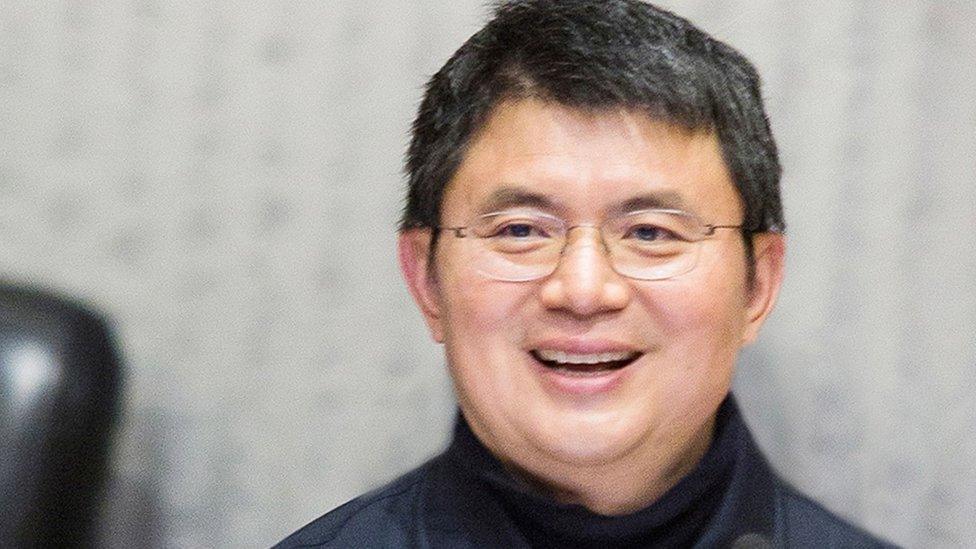
Mr Xiao's family filed a missing person's report shortly after he disappeared, but cancelled it a day later
The Chinese billionaire had been staying at the luxurious Four Seasons Hotel on Hong Kong island before he disappeared early one winter morning in 2017.
Mr Xiao started his career in the 1990s selling personal computers after graduating from Peking University.
The Financial Times reports he built strong connections with families of Communist leaders after he sided with the party against student protests in Beijing in 1989. By 2016, his net worth had grown to $6bn (£4.7bn).
His family filed a missing person's report with Hong Kong authorities after he disappeared but cancelled it a day later, saying they had "regained contact" with Mr Xiao.
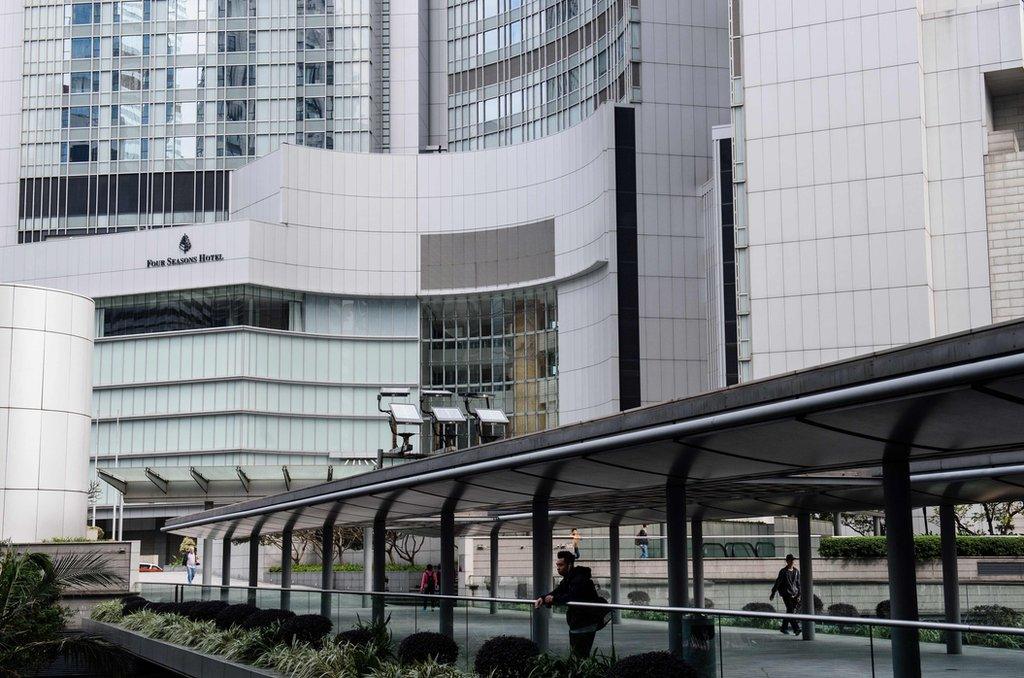
Mr Xiao had reportedly been controlling his companies remotely while staying long-term at the Four Seasons Hotel
Hong Kong police said surveillance footage at the scene showed Mr Xiao did not leave the hotel under distress, but refused to release the footage.
Mr Xiao later issued a statement saying he was receiving medical treatment abroad. He also praised the "rule of law" in the Chinese government and that he was not kidnapped and taken to the Chinese mainland.
It has been suggested he was wanted for financial fraud, but China has not given a definitive explanation.
Wang Bingzhang
Mr Wang is best known for founding the China Democracy Party in 1998, which denounced one-party rule in China. He travelled to Vietnam in 2002 to meet local Chinese union leaders before he disappeared.
Chinese police said they found the activist in the border region of Guangxi later in the year. Media reports at the time suggested kidnappers in Vietnam took him to Guangxi, where he was formally arrested.
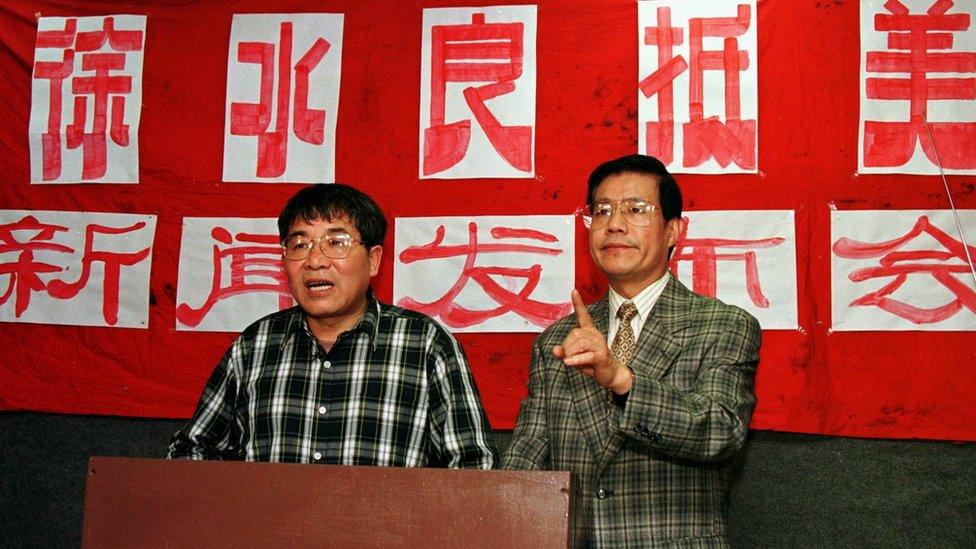
Mr Wang founded a party in the US calling for an end to one-party rule in China
Human Rights Watch said Mr Wang was "abducted" in Vietnam and taken to China, where he was found guilty of terrorism and spying for Taiwan and given a life sentence. Taiwan's intelligence agencies deny they had recruited Mr Wang to spy for them.
Mr Wang's daughter, who holds a Canadian passport, has repeatedly but unsuccessfully tried to visit her father in prison. After her latest attempt earlier this year, she said Chinese immigration officials denied her entry into the country at an airport in eastern China, even though she had a valid visa.
Peng Ming
Mr Peng was jailed twice in China, first in 1999 and then in 2005, before he died in prison in 2016 under questionable circumstances.
He fled China in 2001 for the US and founded a movement for the end of one-party rule in China. His movement, the China Federal Interim Committee, aimed at uniting anti-communist forces and reforming China under a federation.
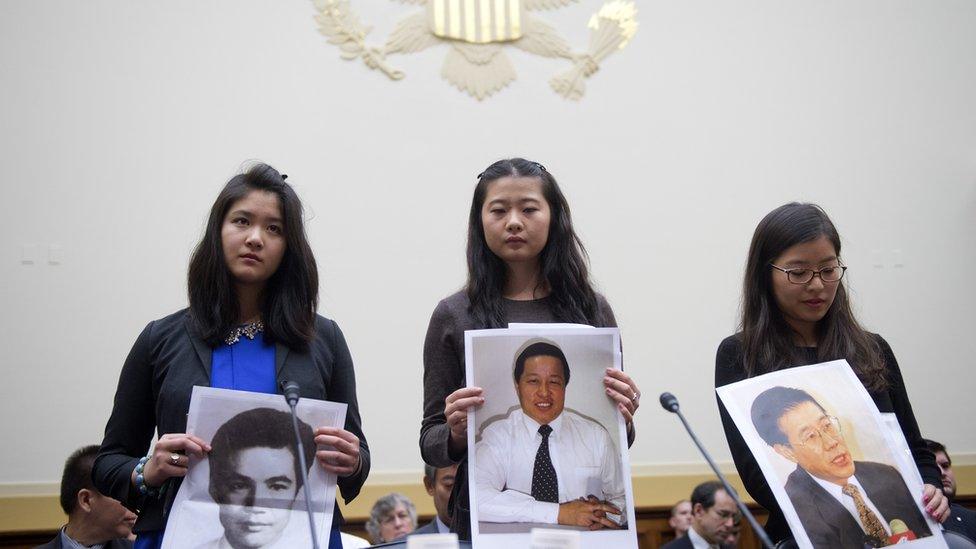
Mr Peng's daughter Lisa (left) and Mr Wang's daughter Ti-Anna (right) with photos of their fathers during a US congressional hearing
According to Amnesty International, he was lured to Burma (now called Myanmar), kidnapped there and taken to China in 2004. He was convicted of possession of counterfeit currency and was jailed for life.
Prison authorities said Mr Peng suddenly fell while watching television and died at the hospital. However, his family has suspected foul play as no post mortem examination was ever performed.
- Published24 January 2018
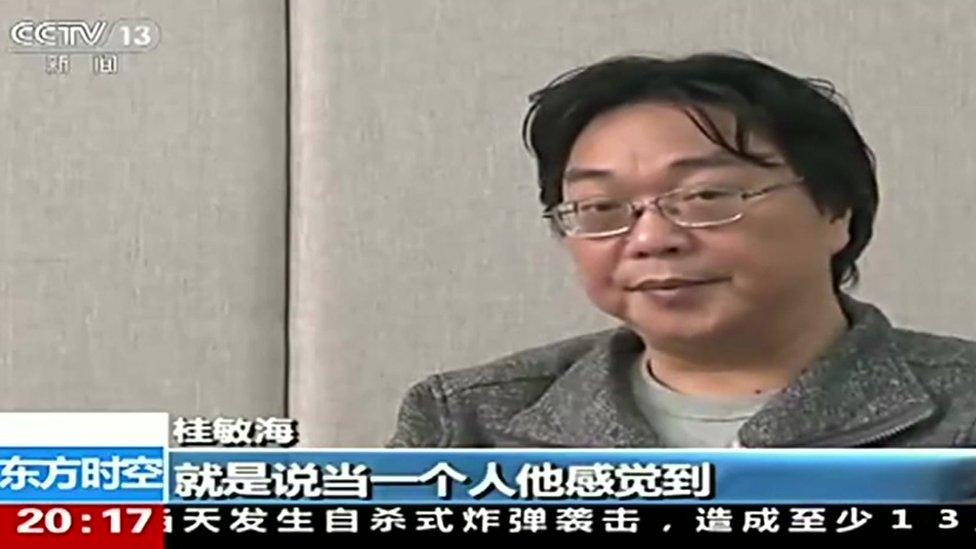
- Published11 February 2018
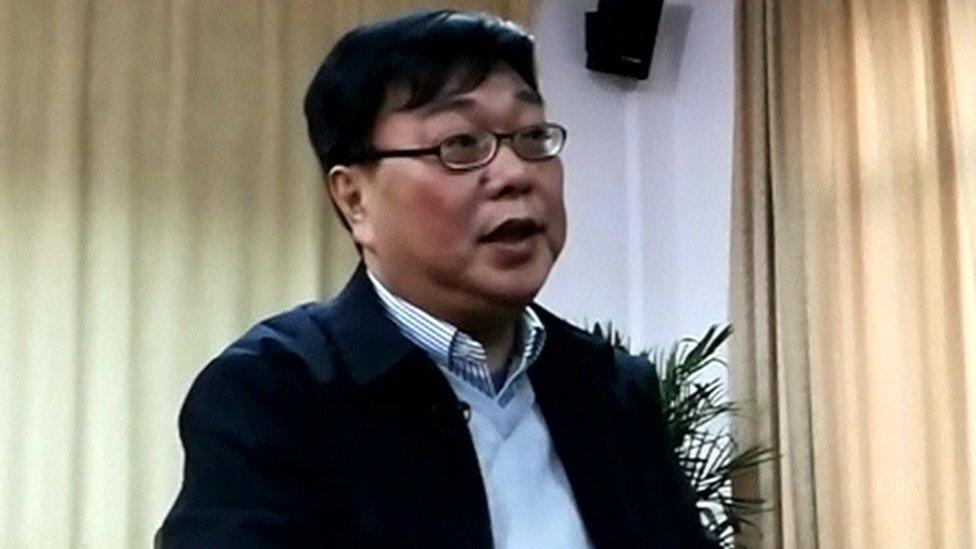
- Published10 November 2015
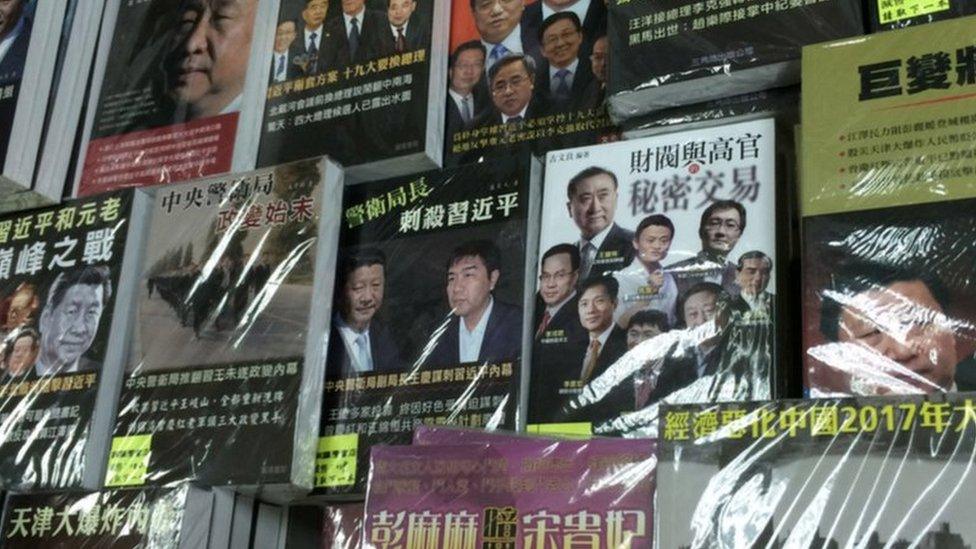
- Published1 February 2017
